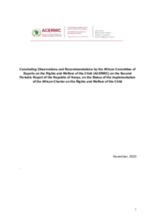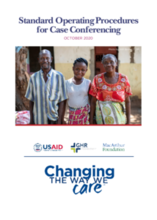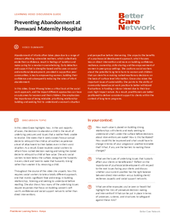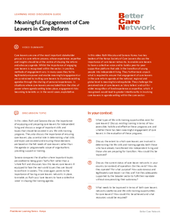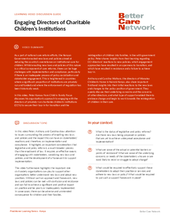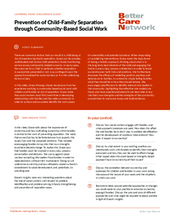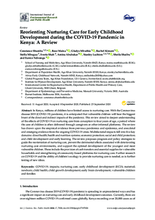This country page features an interactive, icon-based data dashboard providing a national-level overview of the status of children’s care and care reform efforts (a “Country Care Snapshot”), along with a list of resources and organizations in the country.
demographic_data
childrens_living_arrangement
children_living_without_bio
adoption
social_work_force
key_stakeholders
Key Stakeholders
Add New DataOther Relevant Reforms
Add New Datadrivers_of_institutionalisation
Drivers of Institutionaliziation
Add New Datakey_research_and_information
Key Data Sources
Add New DataChildren's Act, 2022 (Kenya)
Prevalence and number of children living in institutional care: global, regional, and country estimates
Social Protection and Disability in Kenya
Kenya Social Protection Sector Review
Country Care Review: Kenya
Child Developmental Disabilities, Caregivers’ Role in Kenya and Its Implications on Global Migration
Research findings on Alternative care system in Kenya for children without parental care
Charitable Children Institutions in Kenya: Factors Influencing Institutionalization of Children
Acknowledgements
Data for this country care snapshot was contributed by consultants with Maestral International.
Displaying 191 - 200 of 447
This article from BBC News tells the story of "vulnerable women [who] are being preyed on in Nairobi to feed a thriving black market for babies."
The purpose of this study was to assess systematically Kenya’s strengths and limitations to implement a parent support program using a mixed-methods study design.
This document lays out the concluding observations and recommendations developed and adopted by the African Committee of Experts on the Rights and Welfare of the Child (ACERWC/the Committee), which considered the second periodic report of the Republic of Kenya during its 35th Ordinary Session.
The purpose of this Standard Operating Procedure (SOP) is to provide a standard and consistent approach to case conferencing as part of a comprehensive case management approach utilized during decision-making processes for children. The SOPs should be utilized by institutions (e.g. Charitable Children’s Institutions, or CCIs) and organizations as well as other actors engaged in decision-making around children’s care and protection.
In this video, Grace Mwangi takes a critical look at the social work approach to the prevention of child abandonment, and the impact different approaches can have on outcomes for women and their children.
In this video, Ruth Wacuka and Samora Korea, two key leaders of the Kenya Society of Care Leavers, discuss the importance of care leaver networks, to enable care leavers to have a collective voice and to build a peer-to-peer supportive platform that aids in the transition of young people into independent living.
In this video, Peter Kamau from Child in Family Focus discusses his organisation’s approach to engaging with the directors of privately-run charitable children’s institutions (CCI’s) to secure their buy-in for transition and the reintegration of children into families, in line with government policy.
Comprised of videos and accompanying discussion guides, this video series features the learning from practitioners working across a range of care-related programs and practices in Kenya.
In this video, Grace Mwangi shares key lessons from her experience working in community-based social work with children and families at risk of separation in Kenya.
This review aimed to deepen understanding of the effects of COVID-19 on nurturing care from conception to four years of age, a period where the care of children is often delivered through caregivers or other informal platforms.

